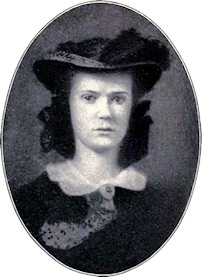Baton Rouge, Louisiana,
March 9th, 1862.
Here I am, at your service, Madame Idleness, waiting for any suggestion it may please you to put in my weary brain, as a means to pass this dull, cloudy Sunday afternoon; for the great Pike clock over the way has this instant struck only half-past three; and if a rain is added to the high wind that has been blowing ever since the month commenced, and prevents my going to Mrs. Brunot’s before dark, I fear I shall fall a victim to “the blues” for the first time in my life. Indeed it is dull. Miriam went to Linewood with Lydia yesterday, and I miss them beyond all expression. Miriam is so funny! She says she cannot live without me, and yet she can go away, and stay for months without missing me in the slightest degree. Extremely funny! And I – well, it is absurd to fancy myself alive without Miriam. She would rather not visit with me, and yet, be it for an hour or a month, I never halfway enjoy myself without her, away from home. Miriam is my “Rock ahead” in life; I’ll founder on her yet. It’s a grand sight for people out of reach, who will not come in contact with the breakers, but it is quite another thing to me, perpetually dancing on those sharp points in my little cockleshell that forms so ludicrous a contrast to the grand scene around. I am sure to founder!
I hold that every family has at heart one genius, in some line, no matter what – except in our family, where each is a genius, in his own way. Hem! And Miriam has a genius for the piano. Now I never could bear to compete with any one, knowing that it is the law of my being to be inferior to others, consequently to fail, and failure is so humiliating to me. So it is, that people may force me to abandon any pursuit by competing with me; for knowing that failure is inevitable, rather than fight against destiny I give up de bonne grâce. Originally, I was said to have a talent for the piano, as well as Miriam. Sister and Miss Isabella said I would make a better musician than she, having more patience and perseverance. However, I took hardly six months’ lessons to her ever so many years; heard how well she played, got disgusted with myself, and gave up the piano at fourteen, with spasmodic fits of playing every year or so. At sixteen, Harry gave me a guitar. Here was a new field where I would have no competitors. I knew no one who played on it; so I set to work, and taught myself to manage it, mother only teaching me how to tune it. But Miriam took a fancy to it, and I taught her all I knew; but as she gained, I lost my relish, and if she had not soon abandoned it, I would know nothing of it now. She does not know half that I do about it; they tell me I play much better than she; yet they let her play on it in company before me, and I cannot pretend to play after. Why is it? It is not vanity, or I would play, confident of excelling her. It is not jealousy, for I love to see her show her talents. It is not selfishness; I love her too much to be selfish to her. What is it then? “Simply lack of self-esteem” I would say if there was no phrenologist near to correct me, and point out that well-developed hump at the extreme southern and heavenward portion of my Morgan head. Self-esteem or not, Mr. Phrenologist, the result is, that Miriam is by far the best performer in Baton Rouge, and I would rank forty-third even in the delectable village of Jackson.
And yet I must have some ear for music. To “know as many songs as Sarah” is a family proverb; not very difficult songs, or very beautiful ones, to be sure, besides being very indifferently sung; but the tunes will run in my head, and it must take some ear to catch them. People say to me, “Of course you play?” to which I invariably respond, “Oh, no, but Miriam plays beautifully!” “You sing, I believe?” “ Not at all – except for father” (that is what I used to say) – “and the children. But Miriam sings.” “You are fond of dancing?” “Very; but I cannot dance as well as Miriam.” “Of course, you are fond of society?” “No, indeed! Miriam is, and she goes to all the parties and returns all the visits for me.” The consequence is, that if the person who questions is a stranger, he goes off satisfied that “that Miriam must be a great girl; but that little sister of hers –! Well! a prig, to say the least!”
So it is Miriam catches all my fish – and so it is, too, that it is not raining, and I ‘m off.
